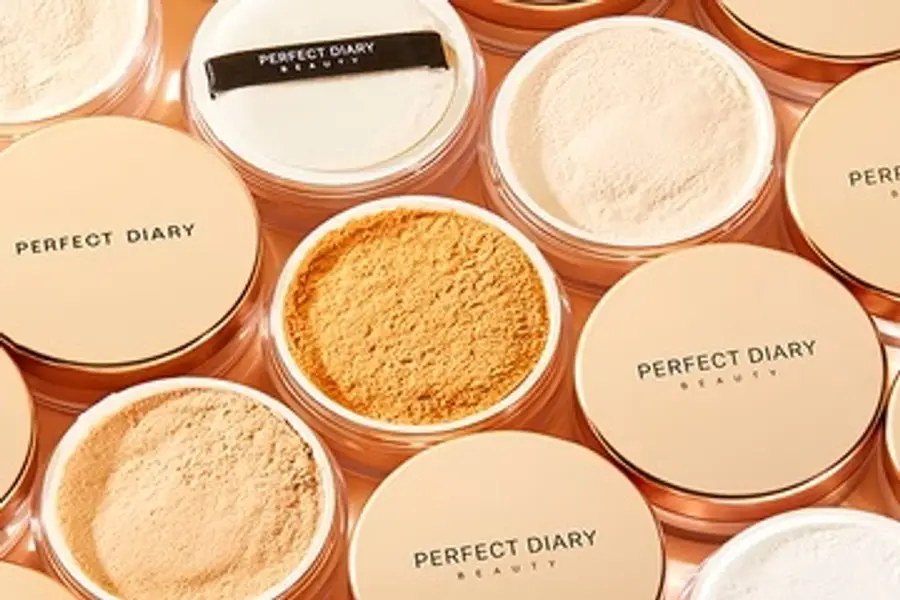Yatsen CEO declares turnaround with quarterly non-GAAP profit

The cosmetics seller reported a nearly 50% increase in its first-quarter revenue from skincare products as it pivots to the segment from make-up
Key Takeaways:
- Yatsen’s first-quarter net loss narrowed sharply to less than $1 million, as it reported a profit on a non-GAAP basis
- Skincare products accounted for 43.5% of the cosmetics seller’s net revenue for the quarter, up from 31.7% a year earlier
By Edith Terry
When Yatsen Holding Ltd. (YSG.US) Chairman Huang Jinfeng declared his company was on the cusp of a turnaround in April, it was just a month before he had the numbers to prove it to investors. On May 16, when the Guangzhou-based cosmetics firm released its first quarter results for 2025, the results showed a second consecutive quarter of top-line revenue growth, after two quarters of contraction, and some pleasant bottom-line news as the company reported a second consecutive quarterly non-GAAP profit.
While the company still reported a net loss for the quarter, even that was less than $1 million, down substantially from a year earlier. All that good news showed that the company’s strong investment in R&D and 240 patents filed in the last few years, mostly for skincare products, has been money well spent. “After our IPO, we went through a turnaround stage,” said Huang in the April interview. “In 2021, we announced that we needed to invest heavily in R&D to expand our skincare revenue. It took us three years, and it was not an easy journey. And now we have finally turned the company around.”
Yatsen reported its first-quarter revenue rose 7.8% year-on-year to 833.5 million yuan ($114.9 million) from 773.4 million yuan in the first quarter of 2024, while its net loss narrowed by 95.5% to 5.6 million yuan from 124.9 million yuan. The revenue increase marked an auspicious start to 2025, since Yatsen has never reported annual revenue growth since its IPO in 2020.
The main driver behind the turnaround was Yatsen’s skincare products, whose revenue soared 47.4% year-on-year to 362.4 million yuan during the quarter. As skincare outpaced growth for its other products, the category’s share of total revenue jumped to 43.5% from 31.7% a year earlier. That helped to drive a 1.4 percentage point increase year-on-year in Yatsen’s gross margin to 79.1%, and a non-GAAP net profit of 7.1 million yuan, compared with a non-GAAP net loss of 83.8 million yuan in the first quarter of 2024.
Investors were less enthusiastic about the upbeat report, despite Yatsen’s announcement of a new share repurchase program of up to $30 million along with the quarterly results. Its shares have fallen by more than 8% in the four trading days since the announcement last Friday.
Yatsen’s shares now trade more than 50% below their IPO price, and its price to sales ratio (P/S) of 0.99 is well behind the 3.88 for the profitable Shanghai Chicmax (2145.HK) and 3.11 for Proya Cosmetics (603605.SH), which is also profitable. Global cosmetics giant L’Oréal (OR.PA) trades at an even higher 4.67 despite stagnant sales and profits.
Yatsen got its start in 2016 by tapping into the emerging online market for color cosmetics with Gen Z consumers under the Perfect Diary and Little Ondine brands. Launched in 2019, its Abby’s Choice skincare brand had minimal sales at the time of Yatsen’s November 2020 IPO, accounting for just 12.9% of total revenue. Just before the IPO, in October 2020, Yatsen boosted its skincare business with its purchase of the iconic French Galénic brand.
Skincare acquisitions
The company has added three more skincare brands since then, DR. WU, Eve Lom and EANTiM, all acquired in 2021. Abby’s Choice was phased out in 2023. But even after its closing, revenue from skincare products had grown to 1.39 billion yuan in 2024, accounting for 41.1% of the company’s 3.39 billion yuan in annual revenue that year. Color cosmetics still accounted for 1.9 billion yuan in revenues, or a majority 58% of the total. But that percentage has been steadily shrinking as Yatsen places greater emphasis on skincare.
The reasons for the pivot are clear, since skincare is the fastest growing segment of China’s 400 billion yuan market for beauty products. Data aggregator Statista said cosmetic sales in China were worth about 126 billion yuan in 2025, with an annual growth rate of 4.76%. But the skincare market was growing by a faster 8% annually between 2018 and 2023 and was projected to reach over 700 billion yuan by 2028.
The reasons behind skincare’s race ahead of cosmetics are not entirely clear. One factor may be the emphasis that Chinese consumers put on anti-aging and skin whitening products. Such products may also have steadier demand in the current climate of consumer caution, while color cosmetics may be perceived as a more expendable luxury.
China’s economic slump has dealt a blow to the domestic business of international cosmetic brands from L’Oreal to Sephora, owned by luxury brand LVMH. Korean brands have also been looking past China to prop up their sales, and South Korea overtook France in 2024 as the top exporter of cosmetics to the U.S.
Yatsen’s share of China’s highly fragmented cosmetics market is tiny at just 1%, according to Huang. He said the company is trying to position itself as a seller of products with strong scientific and technological credentials. Yatsen is also unaffected by the China-U.S. tariff war, since its raw materials are sourced domestically and its exports are limited, mainly to Southeast Asia. Huang attributed Yatsen’s relative success in the current market to its ability to deliver innovative products.
“Chinese consumers are smart, they’re well-educated and they have a strong appetite for new innovations,” Huang said in the April interview. “They want products they have never seen before. That’s the fundamental driver we see when they are making choices. They are also sensitive to getting value for money, which doesn’t mean low prices. They’re just looking for higher value”.
Skincare accounted for 25 of the top 50 brands last year in the annual CBE-Hurun China Beauty Powerful Brands report. Top brands from the segment included Yatsen and Komfymed, a recombinant collagen product that markets itself as “more suitable for Asian skin” from Giant Biogene (2367.HK). Color cosmetics accounted for 19 brands on the list.
Giant Biogene, with a market cap of HK$83.6 billion ($10.6 billion) and P/S ratio of 14, may be a better role model for Yatsen these days rather than cosmetics makers. By comparison, Yatsen’s current market cap is a much smaller $449 million.
Yatsen must certainly be looking enviously at Biogene’s stock, which has more than tripled since its Hong Kong IPO in 2022. Two of three analysts surveyed by Yahoo Finance rate Yatsen a “buy” or “strong buy,” which isn’t bad. But a far larger 20 analysts follow Giant Biogene’s stock, all of whom rate the company as a “buy” or “strong buy.”
To subscribe to Bamboo Works weekly free newsletter, click here




